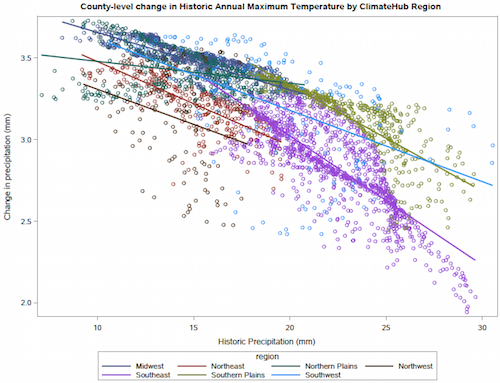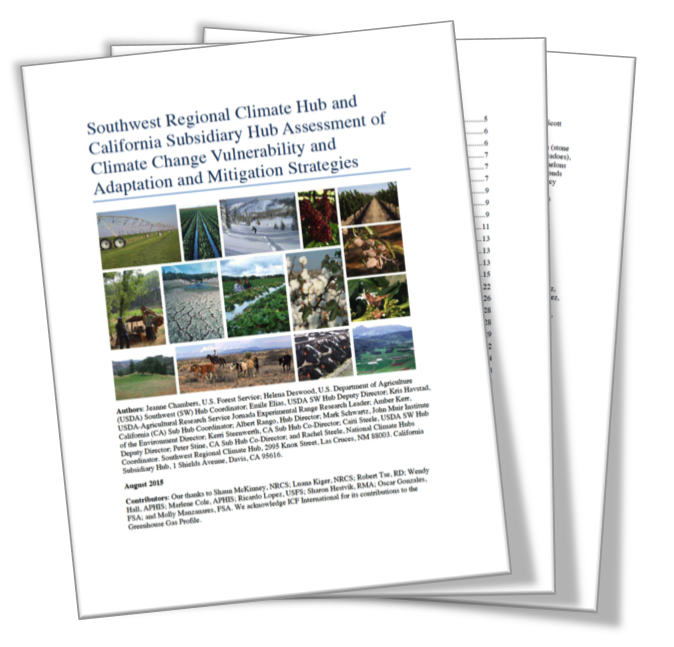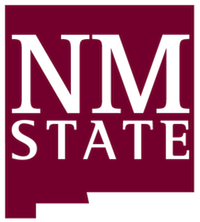- Data
- Videos
-
Publications & Research
-
Education
- Water Conservation Data Jam - Curriculum for 6th-12th Grade Students
- Climate Change and Wildfire – Curriculum Unit for 9-12 Grade Students
- Climate Change and the Carbon Cycle – Curriculum Unit for 9-12 Grade Students
- Where's Our Water? Water Conservation in the Southwest - Lesson for 6-8 Grade Students
- Climate Change and the Water Cycle - 10-Hour Curriculum Unit for 6-12 Grade Students
- The Effects of Climate Change on Agricultural Systems - 5-Hour Curriculum Unit for 6-12 Grade Students
- Cambio climatico y el ciclo del agua
- Webinars and Online Courses
- Websites
- News & Events
- About Us
- RMA
About Us
|
|
The USDA Southwest Climate Hub: developing and delivering climate-smart information and technologies
Albert Rango and Emile Elias, USDA/ARS Jornada Experimental Range, New Mexico State University, Las Cruces, NM

















